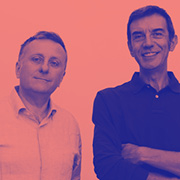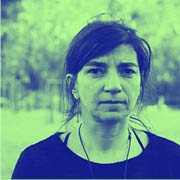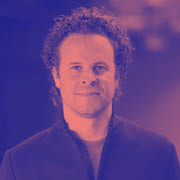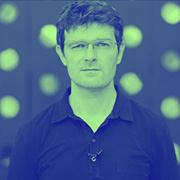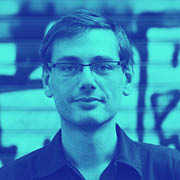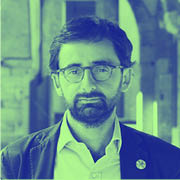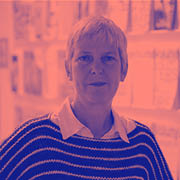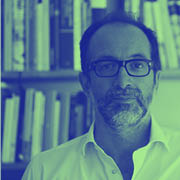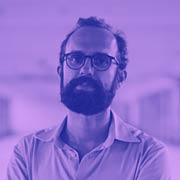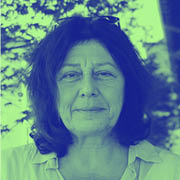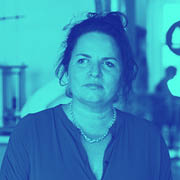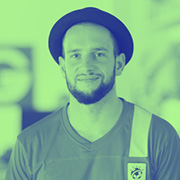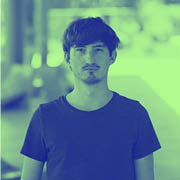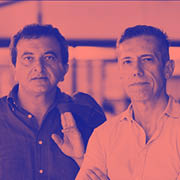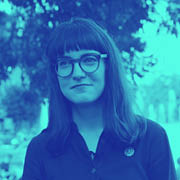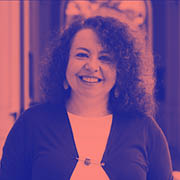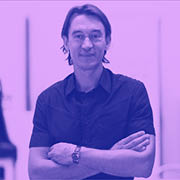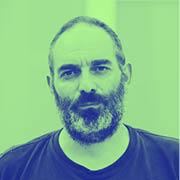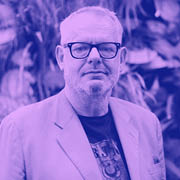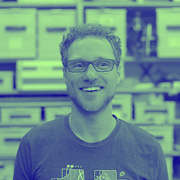ECONOMIST
JIP DE RIDDER
Jip de Ridder studied Economics in Utrecht and Lund, with a focus on entrepreneurship. His thesis examined the ‘Broodfonds’, a self-governing collective of freelancers who organized their own disability insurance. Jip and his brother Florian founded CommonEasy in order to provide others with an alternative to the big, anonymous insurance companies.
TERMS
ecology
free space
common interest
coops
NEW ECOLOGIES
ECOLOGY
We are trained to live in a democratic market society with specific institutions that could actually be characterised as our man-made natural surroundings. The ways in which our societies are organised function as ecological systems, working on both a macro and micro level. On a macro level, these ecologies are formed by the conditions that shape us as individual human beings. However, they are also influenced by what we do as a society, how we think collectively, what we view as important, what we take responsibility for, and what we put energy into. There is a whole new ecology of ways of communicating, coming together and working together, which are rediscovering the commons as a more intuitive way to organize societally. One million people are currently self-employed in the Netherlands, a 90% rise in the last decade, but 60% to 80% of them don’t have any form of income insurance in case of accidents or disability. That is because the government no longer sees the provision of an income safety net for self-employed people as their responsibility - they leave it to the market. The market however doesn’t supply such insurances because they would be prohibitively expensive. I see a chance for people to address this issue, at the micro level, through organizing their own networks and communities to form these supporting ecologies. Whilst, there are no unions for self-employed people, they can still be organized through platforms offered by social media and through co-working places. The space where we are based, the Stadstuin in Utrecht, is a former governmental building, now packed with self-employed people, creating their own economic micro-ecology. I find it inspiring and I hope such ecologies will succeed in the long run.
URBAN ASSETS
FREE SPACE
Urban Assets point to the quality of our surroundings, the tools, resources and objects that provide the ability and power for us to be freely active in society. We need to have more spaces to experiment that remain free of vested interest and to address the lack of free space – unprogrammed space. The space where we are working is what I would consider a free space. There is an abundance of room here and anyone can organize an event or build an installation. It allows people a productive opportunity - to take action. It is also about fostering ideas and the freedom of discussion. Such free spaces are the most important assets for a flourishing city, which can easily be over-programmed.
DIGITAL TOOLKIT
COMMON INTEREST
Digital toolkit implies a collection of tools that empower us and enable us to do things that we cannot achieve ourselves. CommonEasy is one such asset of the digital toolkit through which fellow peers can organize and realise a collective communal agenda. We need more of such tools to empower people. CommonEasy is trying to teach people that practising solidarity is in our common interest. There are a lot of tools available but not everybody has the same level of access. The challenge of this digital age would be to address accessibility to ensure people can make themselves productive for a common good.
NEW COLLECTIVES
COOPS
The economy is becoming increasingly flexible and self-employment is an outcome of this. Collectives become critically important in supporting these people who must operate in an entrepreneurial environment but may not have the individual skills to be entrepreneurs. Further, competing in a market is a big challenge and collectives could provide a support network in many ways. CommonEasy for example, partners with two coops. One organizes healthcare access for self-employed people and the other assists journalists to organize themselves collectively in order to approach publishing companies and get a fair share of work. Collectives could also address matters of administration, taxes, marketing, sales, and so on. These ‘in-house’ services within a typical company environment are instead supposed to be undertaken effectively by self-employed people themselves – sometimes an almost impossible task. Coops also provide collective representation and market power to counter market space platforms that might price out sole trader businesses.
INTERVIEWED BY
ANIA MOLENDA
Jip de Ridder discusses the costs of convenience and how a sense of solidarity could offer a better future to the growing generation of precarious workers.
website
JIP DE RIDDER
jipderidder.nl
AM:
What values or issues do you see that characterise our contemporary vocabulary? Is there anything we should do in response to this?
JdR:
The vocabulary is too heavily defined in terms of consumption. I think it is really important that we stop thinking simply as consumers. We should no longer expect that problems can be solved with an app or a website or that we can buy it in a store. People need to actively take responsibility for the conditions that affect them.
AM:
Do you believe that this relates to the way in which words enter our vocabulary, the way that we name things and communicate with each other?
JdR:
I am not sure if it’s about words per se. I think it is more about the lack of a complete perspective of responsibility. We are so trained to be passive in the process of consumption, without proactively contributing. I think this has to change and we need to become prosumers. In a context of collaborative consumption you can call it sharing economies. These are possible terms but fundamentally, I think it is important to become active in the process of consumption and realize that we have a stake in things. I spoke with an individual who was in the process of being relocated from the Netherlands to Poland in order to continue his job in IT providing support for that same company back in the Netherlands. . I was astounded at the ambivalence to the issue - he saw a job opportunity whereas I saw exploitation. It may be that we lack the proper vocabulary, but I believe the larger issue is that we are so used to not taking responsibility for something and consequently we don’t’ claim our roles in our community in a serious manner. It appears as though we view companies, people and communities as totally separate entities but it is simply not the case. It is all about human interaction.
If you are not organized, you are being organized.
website
COMMONEASY
commoneasy.nl
AM:
Do you have a personal story that deals with understanding and misunderstanding in relation to this issue?
JdR:
With CommonEasy we conduct workshops with peers and they are really important to us because we get a feeling of how people actually feel and respond to our collective concept. We view it as an offline platform for interaction and building trust and relationships. What we notice is the distrust that is trained into people. For example, we explain CommonEasy’s structure as working in circular network, with first, second and third degree connections that you share through each other’s network. Immediately when I start to explain it people ask; ‘is this a pyramid scheme?’ And I think “Seriously! This is all about empowering you and actually the capital structures that you are using right now are the biggest pyramid scheme out there!” We are confronted with a lot of mistrust to our structure because many people are used to financial products that don’t work in their own interest. My mission is actually about empowering the people around me, because I need them to be empowered, in order to be empowered myself. If you are not organized, you are being organized. In our society, the best-organized people operate in the financial industry and they are doing a really good job of it.
It appears as though we view companies and people and communities as totally separate entities but it is simply not the case. It is all about human interaction.
project
COMMONEASY THE BOARD GAME
Image courtesy of CommonEasy
Students help develop the prototype boardgame for CommonEasy workshop events
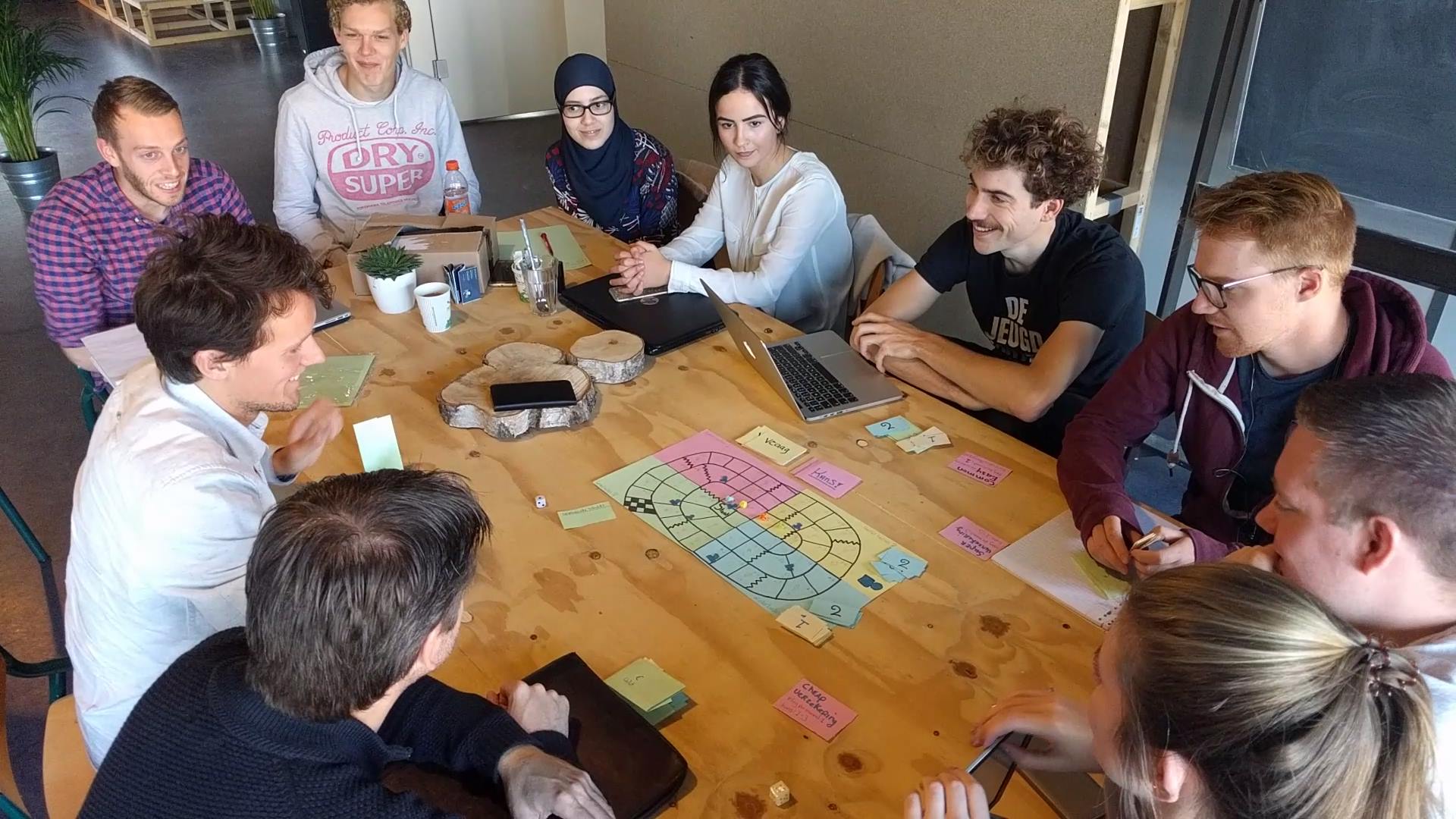

AM:
Can you tell us what CommonEasy is and how it works?
JdR:
CommonEasy is a tool to empower existing communities in order to organize them in a way that is in both your own interests as well as the interests of your community. I think that this is necessary because we are currently dependent on products from entities that pursue their own interest, not ours. We try to be that alternative, to help organize people’s network so they have a safety net. The commons is about sharing resources, but it is also about collectively claiming responsibility. With CommonEasy we make solidarity a common value and we try to make cultivating this easier so it can actually benefit people. The concept consists of three pillars. The first pillar is ‘people networks’. The second pillar is ‘rules’, after all it is only enjoyable to share if it can be seen to be done fairly. The third pillar is ‘your money should be well managed’. If your money is not well managed it becomes a source of conflict, so the third pillar relates to your wallet - that you are actually managing yourself. We worked for six years to combine these pillars in a way that we could use as a social network. It is a platform, a tool that helps organize your existing social networks with people that you trust, in order to cultivate a collective solidarity that is latent in that network. People love to help each other, so we aim to organise that in a way that people can use to provide mutual insurance.
AM:
I find it interesting that you have engaged with insurance. In the context of cities terms such as ‘insurance’ and ‘resilience’ are highly utilised buzzwords within existing power structures - about seeking to future-proof the city. Where do you see the greatest potential of the commons and peer-to-peer values to disrupt this narrative and steer it in a different direction?
JdR:
I really believe in the ability for a community to organize its common interests and produce a supporting infrastructure that is not exploitative of people. I think this represents a fundamental difference. We see a lot of new platforms being built right now whose core business model remains built on exploitation. This could be called a sharing economy, but you could also call it crowd-based capitalism. They are effectively capitalizing on the crowd and its resources. How much resilience do we actually have against such platforms and an exploitative financial industry? I think that there is a lack of initiatives actively addressing this in this field.
In finding a new way of insurance, we chose not to approach the big companies because we didn’t believe that they wanted to make it work in the same spirit as we did. Concepts like peer-to-peer have great promise to contribute back to society through building relationships. However, there are still not enough people who truly understand the promise of peer-to-peer People don’t understand the potential economic power of that infrastructure, that has the potential to empower their lives without exploitation. We may have a lot of political freedoms but economic freedoms are still relatively limited.
We have grown accustomed to buying and consuming.
AM:
Why do you think it is so difficult for people to comprehend a solidarity-based enterprise and how they could benefit from it?
JdR:
I think solidarity is one of the biggest qualities that we, as a species, possess. We have not organised ourselves to survive on our own - we need other people. This has existed from a very early time in our socio-cultural development. What is positive in this is that many of our interactions are based around opportunities to ‘help’ one another - to be valuable to others. If you look at how this has been organized now however, it has been horribly distorted. It is about market transactions, website portals, insurance forms and options. We never see the company or speak with a person and we have little idea of what we are buying. I just know that if I have a problem it is their responsibility to fix it and I pay them for it. It is incredibly passive and it teaches us nothing about real solidarity, which is what insurance is. It is taking care of others when the chips are down.
workshop
MONEYLAB#2
Image courtesy of Institute of Network Cultures
Jip de Ridder leading a workshop on P2P Insurance, 2015
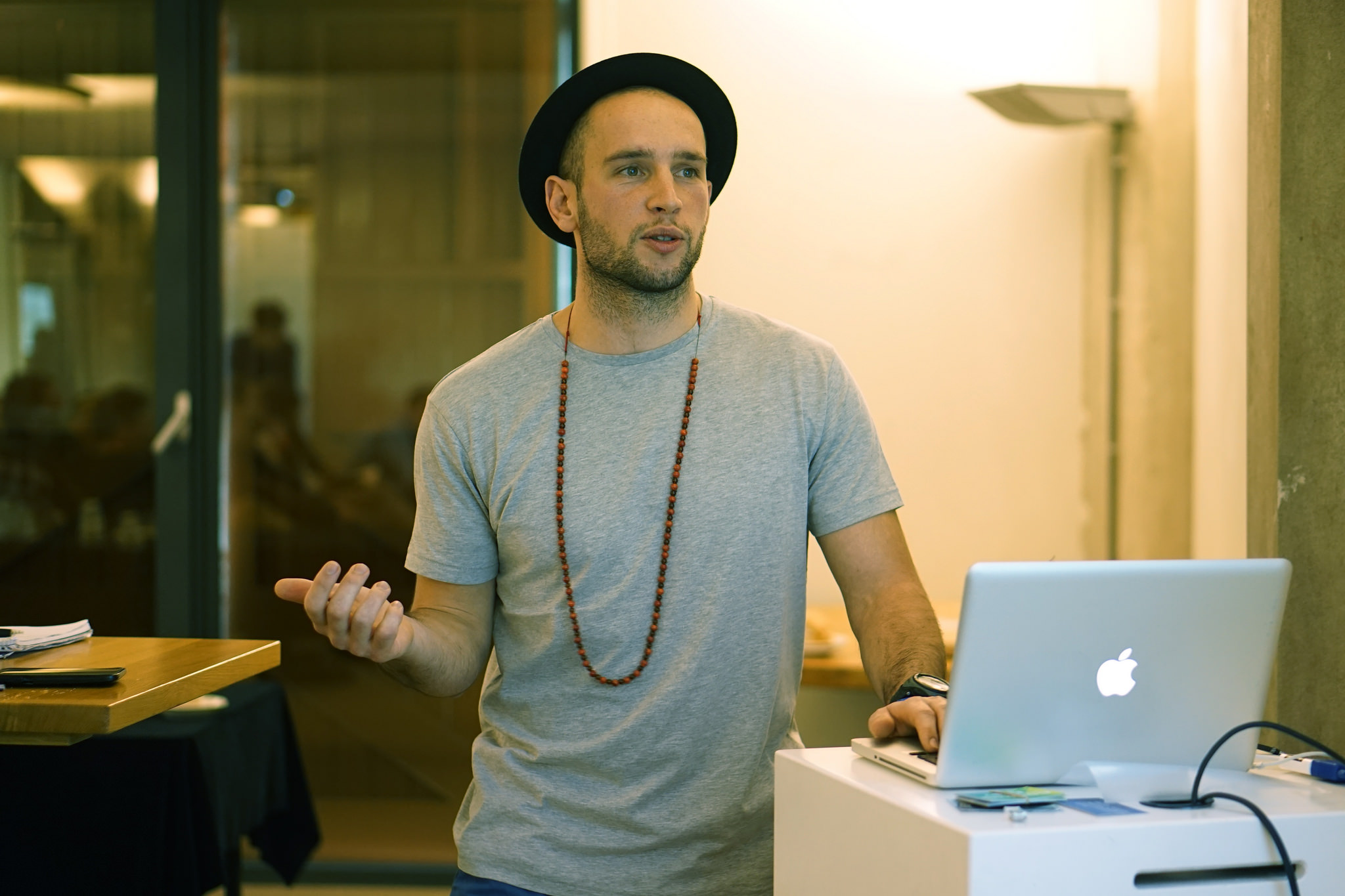

AM:
Do you think there is a reason why people accept this transactional model rather than seek one based on solidarity?
JdR:
I do not feel that we can blame people - we have grown accustomed to buying and consuming. It has become all about convenience and consequently it is hard work to build relationships based on trust. The reason why people become so dependent on transactional models is because it does work by some measures. It is expensive, but effective if you lead a busy life. People already feel so much pressure from their daily jobs to make a living, there is little encouragement to be occupied with the people around you. It is just the way our economy works.
I think we did need transactional companies in the first place because we needed their bureaucracy and systems to scale economies and make them cost effective. However, we are now entering into an age where we have the capacity to do so amongst ourselves with peer-to-peer systems. I am running CommonEasy with my brother and a flexible network of supporters – a totally different structure – but it is possible to do it together because we have the modern tools and the typical support of bureaucracy in no longer necessary.
I think this is why the future to come is really interesting. Are we capable of organizing ourselves and improve our quality of life through expanding our economic freedoms? Or will we remain passive consumers to the new platforms of crowd-based capitalism? I think that is the new frontier.
